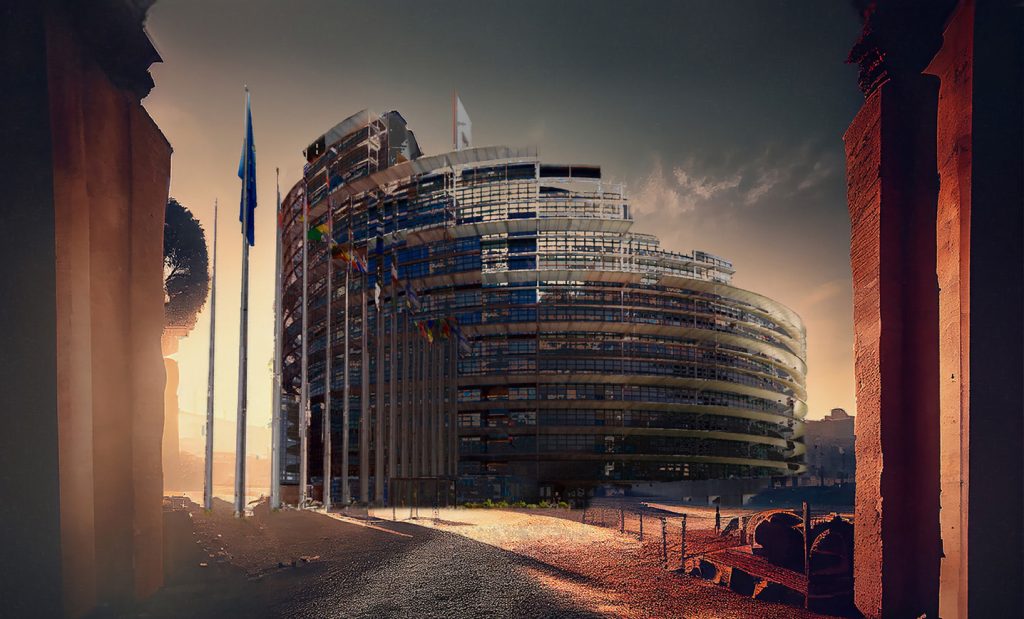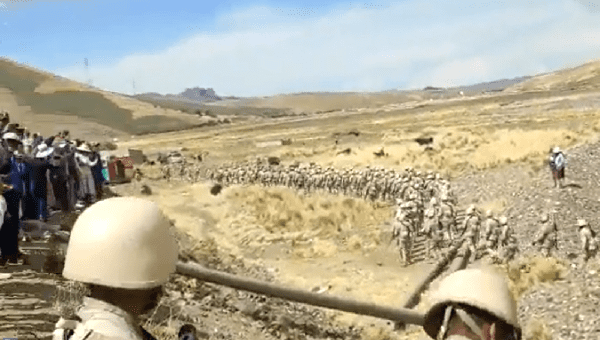Raúl Zibechi
Systemic chaos is so deep, and the monopolistic media that misinforms so naturalized, that it is difficult to get a clear picture of where we are, which is an inescapable step in trying to decipher where we are going. Even knowing that the attempt may fall short or go terribly wrong, here are some ideas about what we are going through.
On the global scale, the analysis of the think tank European Policy Anticipation Laboratory, in its newsletter 171, seems accurate: A new macroeconomic and geopolitical paradigm continues to take shape and we believe that the European Union will be mainly weakened, behind its historical protector, the United States, which preserves its global power alongside a China at the crossroads and a burgeoning India (https://bit.ly/3wqD8PH).
In the next line, it stresses that Latin America runs the great risk of succumbing once more to United States influence, although this will not stop it from launching dynamics of cooperation within the continent. In short, Europe and Latin America will continue to be subordinated to the United States, and therefore, will have the most difficulty finding their place in the new world.

Secondly, we must look at what is happening in the daily life of our societies. The Brazilian portal Passapalavra writes about the ultra-right: we are facing a great social movement born of the barbarism of territories increasingly managed by the direct violence of a regulation that moves away from the logic of social rights, and is anchored in capitalist practices that commodify everything from the people’s territories to their own bodies as merchandise. (https://bit.ly/3wdIAWh).
The author of the text, urban planner Isadora de Andrade Guerreiro, affirms that progressivism is not capable of interpreting what is outside the dominant institutionality. The world of crime (understood as the totality of accumulation by dispossession), dilutes the boundaries between worker and criminal, between legality and illegality. Once the cohesive world of the wage society has been dissolved, through the ongoing wars, society is in the process of reorganization.
This mode of criminal production needs a new institutionality, with other forms of political and social legitimization. We could put it another way: accumulation by dispossession/extractivism/fourth world war generates new political forms and institutions, which are taking shape on the rubble of the old republics and decadent democracies.
In a third dimension, between the two scales, between the macro and the daily, the militarization of our societies does not stop escalating, in a complex and for now irreversible process, which is born at the top and reproduces itself at the bottom. Militarization affects the whole of society, it is the form that capitalism is taking in this period of dispossession. At the top we have the Mexican model, as Silvia Adoue, a teacher at the Florestán Fernandes School of the MST, names it, for whom the armed forces are assuming new structural roles (https://bit.ly/3kAfCNO).
Militarization is imposed in state enterprises and in the control of the Amazon, as in Bolsonaro’s Brazil; but public order and even universities are also militarized, as in Peru today. The objective, in all cases, is to shield the mode of accumulation: open-pit mining, monocultures, large infrastructure works, to facilitate the appropriation of common goods and the flow of commodities.

Based on these three views (global, local and intermediate), we can come to understand how the ruling classes are reshaping the system, manu militari, to sustain a new system, perhaps not so capitalist, while maintaining colonialism and patriarchy. This is first and foremost.
Progressives are complicit in this process by promoting militarization and militarism. This left speaks of the right, of the ultra-right and even of fascism, so as not to speak of the armed apparatuses of the State, that is, of the nucleus of the nation-state that oppresses the peoples, which is intrinsically colonial-patriarchal.
It is the armed forces that engender the paramilitary and drug-trafficking groups, directly or indirectly, by providing them with weapons, training and seasoned experts such as retired military personnel, placing logistics and intelligence at their service.
The electoral left does not have a policy towards the armed forces, it subordinates itself to them and dodges its responsibility by blaming all evils on the right and, when it fails, it limits itself to crying coup without mobilizing.
I understand that it is not at all easy to confront the armed herds, legal or illegal. It is even more difficult to do it avoiding the armed confrontation that caused so much pain in the past. That is why we must create a new policy, one that is capable of addressing the permanent state of exception in which the peoples survive.
This article was published in La Jornada on January 27th, 2023. https://www.jornada.com.mx/2023/01/27/opinion/010a2pol
English translation by Schools for Chiapas.
